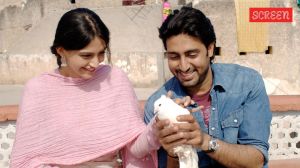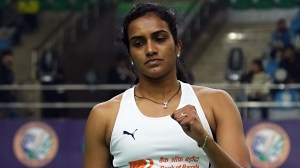Sociology at silly point
The last fortnight has been hopelessly bewildering for the rare follower of both sport and politics. Over in England national football co...

The last fortnight has been hopelessly bewildering for the rare follower of both sport and politics. Over in England national football coach Glenn Hoddle lost his job for venturing into spiritual quicksand and pondering over an ever so tenuous link between bad karma and congenital handicap. A controversial red-card decision that reverberated in the House of Commons and raised the inevitable furore over, what else, freedom of expression and the ironic spectacle of another New Age junkie, Prime Minister Tony Blair himself, sitting in judgment over a sporting icon8217;s mystic musings. What8217;s politics doing in sport, you8217;d be entitled to ask.
Happily, in our part of the world sport, specifically cricket, has become the singular metaphor for all that is right with our socio-political establishment. What wo-uld normally have been decried as an unabashedly commercial schedule 8212; that too on the eve of that all-important World Cup 8212; the Indo-Pak Test series has been hailed as a reassuring test of national character.And even as it successfully concluded with a politically correct 1-1 draw, diplomats and political commentators alike abandoned the seminar circuit and legislature portals for the cricket pitch and frowned over every gesture, every cheer, every innuendo to gauge the very future of bilateral ties, the very direction of Indian democracy. What8217;s sport doing in politics, you8217;d be entitled to ask.
Admittedly, diplomacy is a new will-o8217;-the-wisp willow talkers have been burdened with. But while the men in white have risen to the occasion and infected New Delhi and Islamabad with a fresh spirit of bonhomie and brotherhood, there have been stray laments about the taming of a traditional rivalry, about cricket no longer being just a game. Don8217;t reduce the India XI to a surrogate MEA, goes the chant, restore the game to the sports pages and sports channels, don8217;t scan the cracks in the pitch for a sign of things to come.
But then cricket has never been just any old game; indeed, in independent India the cricketingcauldron 8212; with its eclectic mix of individual skill, team spirit, crowd emotion, vagarious weather conditions and capricious lady luck 8212; has time and again been seen a microcosmic reflection of society at large. And doubters would be astonished to learn that the conclusions drawn therein have been startlingly enduring.
Consider the current tale of two cities, Madras and Delhi, alluded to among others by Pakistani skipper Wasim Akram. Pleasantly surprised at the standing ovation accorded to his team by the Chepauk crowd, he said he would not expect the Delhi crowd to behave similarly, just as in Pakistan Indians could expect such support in Karachi, not in Lahore. Loaded sociological analysis, that.
Now consider these two remarks. 8220;The Madras crowd is less partisan and quicker to appreciate good cricket by either side than Delhi.8221; 8220;The vast majority of those who flock to Delhi8217;s Ferozeshah Kotla ground comprise of tamasha-lovers, with the game of cricket in the middle being just another of theprops for a successful day-long picnic.8221; Despatches from journos covering the current tour attesting to post-liberalisation urban discrepancies? No, sportswriters8217; comments from the seventies!
But now, as a whole nation sighs in relief over the cricketing stamp of approval for a new era in Indo-Pak ties, the reflection in the 22-yard mirror offers some cause for concern, for some critical analysis of what this portends for fin de siecle Indian society.
For, tomorrow when the game reopens in Calcutta8217;s Eden Gardens, the rules of the game will have changed. No longer will Test cricket be a gentle bulwark against the onslaught of one-day matches with their frenzied run chases 8212; by extension modern-day lifestyles with their breathlessly accumulative spirals. The five-day game will finally not only be about winning and losing, but points will be accorded 8212; what sacrilege 8212; for run pile-ups and wickets taken in the first 100 overs. Social scientists would be advised to shun academia and grabstrategic clubhouse seats to chart for us the upheavals ahead.
- 01
- 02
- 03
- 04
- 05































